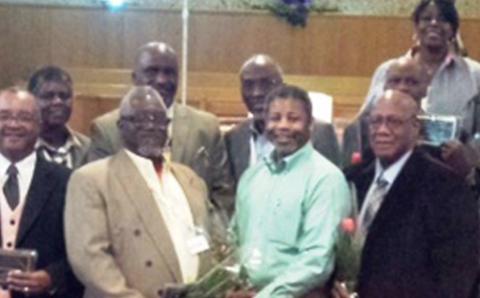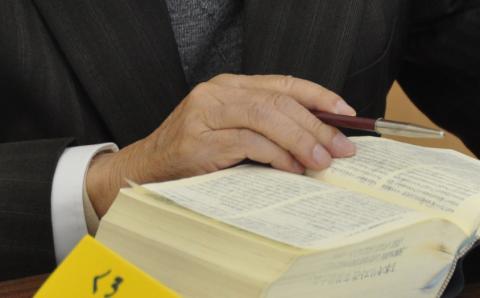Jeffrey Jacobs was still in his thirties when he was elected by his congregation to serve as an elder in the church. Attending his very first elders’ meeting, he wondered what he had gotten himself into. Looking back, he realized that it had been a fearsome experience for him.
But then Jeffrey decided to seek help. He approached an older, experienced elder who agreed to discuss with him the many facets of the elder's task—especially how Jeffrey might relate to the members of his district. When they parted company, the elder added, “Jeffrey, care for your members! Love them, try to understand their worries and pain, pray for them often, be a shepherd to them.”
Key Responsibility
That older elder was on target. The Christian Reformed Church’s “Form for the Installation of Elders” puts it succinctly: “Elders are thus responsible for the spiritual well-being of God's people.” The Form mentions other duties too, but this role as shepherd is the heart of it.
So what does that entail?
“Spiritual well-being” means foremost that members are redeemed, that they have faith, that they know themselves to be God's children. Romans 10:17 talks about the origin of faith: “. . . faith comes from hearing the message, and the message is heard through the word about Christ.” Believers have accepted the Word of God.
Churches bring the Word to the members in many forms. Foremost are the worship services in which the preaching of the Word is central. The Bible is also read and studied by the members personally. And that's also where the elders assume their responsibility: helping individual members to thrive in their faith and in assurance of their salvation.
From among the body of believers, Christ ordained that some people be specifically appointed to accompany church members in their faith walk. That’s how the church received the office of elder. Elders affirm believers in their salvation and in their Christian walk of life; they encourage their fellow believers.
Elders do much of their work by talking to believers. Article 65 of the Church Order stipulates that elders of the church “shall extend pastoral care to all members of the congregation.” They do this by calling on the members. Elders know that believers sometimes have problems, struggles, setbacks, failures, and disappointments. They urge their flock to go back to the Word and be strengthened in their faith. That's what the Form means when it says that elders are responsible for the spiritual well-being of God's people. Elders are shepherds.
Relating to Members
Newly elected elders soon find out that they can do this work best when they get to know their people. So they introduce themselves; they cultivate relationships. One-on-one discussions are always easier when the participants have a relationship of trust. The wise elder, as soon as he or she is installed, sends a letter of introduction to the members of the district. They don’t overlook the young people. They assure the members in their care that they are available to them at all times. They find out what these members do for a living. After church services, they approach their members, shake hands, and ask about their well-being.
And since the Form also mentions that elders shall “promote fellowship,” they serve as a link between the members of their district, helping them to become a community. They encourage their district to help each other by such things as forming prayer chains among the members and encouraging them to bring meals or help out during times of need.
When visiting families or individuals in their district, elders should avoid making small talk. They are there to talk about these members' well-being. So they ask about their life, how they are doing, and how their experiences have affected their faith. They ask about their prayer life and encourage them to bring their trials to the Lord in prayer and give thanks for the blessings they experience. Above all, they assure people of the love of Christ.
To be an elder: what a blessed calling!
For Further Reading
The Elder’s Handbookby Louis M. Tamminga (Faith Alive) offers much more wisdom for helping elders carry out their ministry effectively. See especially chapter 20 (pp. 54-61) for more suggestions on visiting and caring for the members of the elder’s district.
About the Author
The late Louis Tamminga (d. Nov. 11, 2024), a long-time pastor, leader, and administrator in the Christian Reformed Church, wrote the pastors' In Memoriam column for The Banner until 2015.









